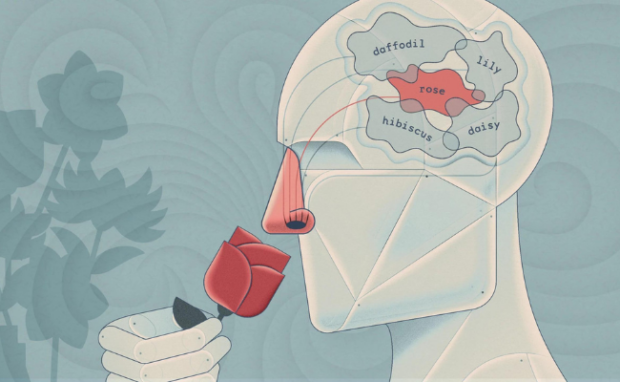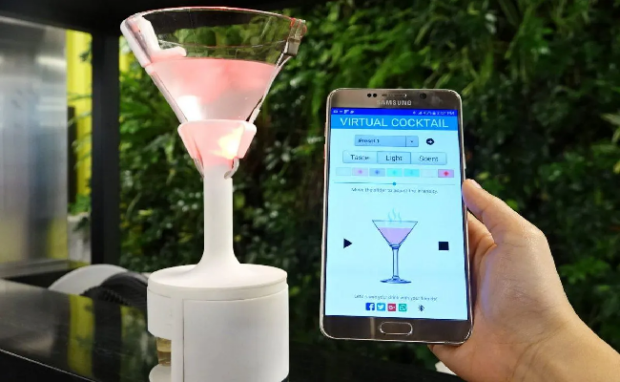AI ‘nose’ can describe what molecules smell like
If you thought you’d seen everything AI can do, follow your nose for its potential! You read that title correctly; scientists have created an artificial intelligence that predicts a chemical’s odor based on its molecular structure. As a result, researchers hope to advance the world’s understanding of human olfactory senses.
I’ve been covering AI topics for years, but I’ve never seen anyone apply it in this manner. Nowadays, most AI programs can cook, write, film, sing, and satisfy the five senses except our sense of smell. Thanks to these researchers, artificial intelligence may soon create scents. Perhaps your next cologne or perfume will be AI-generated, too!
This article will discuss how scientists use an AI nose for their unique research. Later, I will share similarly strange tech projects involving scents and tastes.
How does the AI nose work?

Photo Credit: quantamagazine.org
On September 1, the research news outlet Interesting Engineering explained how the AI olfactory project worked. The website said we lack “information regarding sensory relationships concerning smell.”
We can perceive scents because of nose proteins called odor receptors. “In olfaction research, however, the question of what physical properties make an airborne molecule smell the way it does to the brain has remained an enigma,” explained Joel Mainland, senior co-author of the “AI nose” study.
He and his team explored this mystery by creating an AI model correlating a molecule’s odor with its molecular structure. Here’s how it works:
- They created a dataset containing the molecular makeup and olfactory traits of 5,000 recognized odorants.
- The scientists submitted it to an AI model for training.
- Next, its algorithms predict which odor words would best fit the molecule’s aroma.
- Monell Chemical Senses Center researchers conducted a blind validation survey to verify the model’s effectiveness. They gave 15 panelists
- 400 odorants and asked them to describe each by picking from 55 words like musty and mint.
The experts found their AI model outperformed the panelists in examining 53% of the compounds examined. Moreover, the AI nose system developed an emergent behavior.
You may also like: Algorithms affect music playlists
It performed olfactory tasks the researchers did not intend. “The eye-opener was that we never trained it to learn odor strength, but it could nonetheless make accurate predictions,” told Mainland.
Interestingly, the program paired chemicals with different structures yet similar scents. More importantly, the researchers believed it would help the “world closer to digitizing odors to be recorded and reproduced.”
“It also may identify new odors for the fragrance and flavor industry that could not only decrease dependence on naturally sourced endangered plants but also identify new functional scents for such uses as mosquito repellent or malodor masking.”
Are there other scent and taste tech projects?

Photo Credit: forbes.com
You’ve heard about the AI nose, but have you seen the VR nose? I have been discussing tech topics for years, so I’ve discussed projects implementing scents in virtual space.
Most VR experiences only serve our senses of hearing, seeing, and touching. However, these projects claim virtual reality must involve the five senses to become fully immersive. Gadgets like the FEELREAL Multisensory VR Mask immerse our noses. It merges scent samples to emulate odors in their virtual worlds.
You may also like: AI creates antibodies for diseases
For example, it may simulate an ocean breeze or grass in a video game. Taste is the only sense we haven’t discussed yet, so here we go. Believe it or not, some folks took virtual immersion to the next level by creating a digital experience you can savor.
For example, Nimesha Ranasinghe, a former National University of Singapore researcher, created the Virtual Cocktail or Vocktail. It makes plain water taste like various drinks like orange juice by stimulating your taste buds with electrodes.
Its light-emitting diodes change the water’s color to mimic the original drink. Also, it releases fragrances to complete the experience. However, it cannot change the water’s consistency, so you can’t emulate a thick milkshake with this gadget.
Conclusion
Researchers from the Monell Chemical Senses Center and the Massachusetts-based startup Osmo created an AI nose. It matches the molecular structure of various chemicals with their odors.
The scientists hope their experiment will help other experts learn more about how humans perceive odors. Moreover, it may lead to AI-generated scents.
Maybe it could help develop more effective pest repellents and odor-masking sprays. Learn more strange yet groundbreaking innovations at Inquirer Tech.